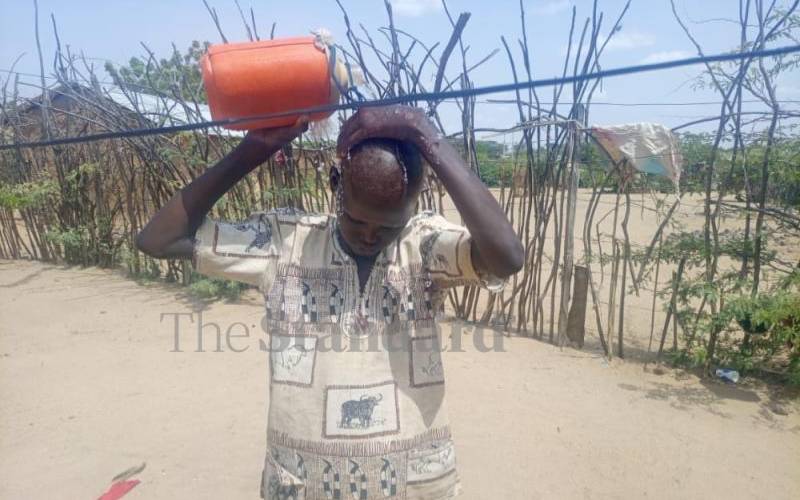×
The Standard e-Paper
Smart Minds Choose Us

Peter Lomonta was born with a rare disorder. His body has no pores and therefore he does not sweat.
He is a member of the minority Ilimanyang community living at Kapua village on the shores of Lake Turkana.